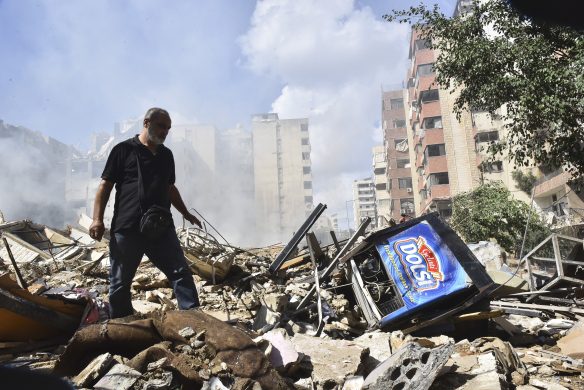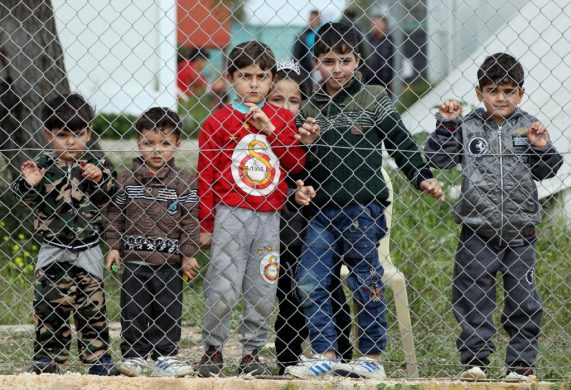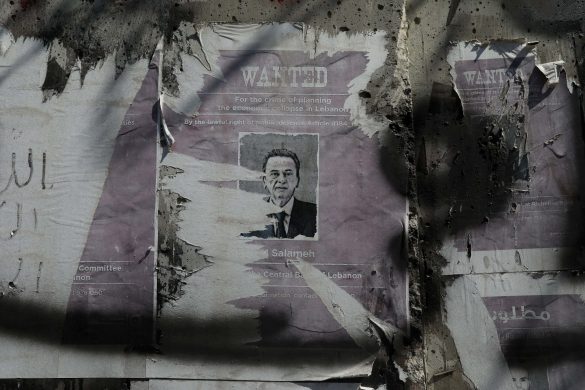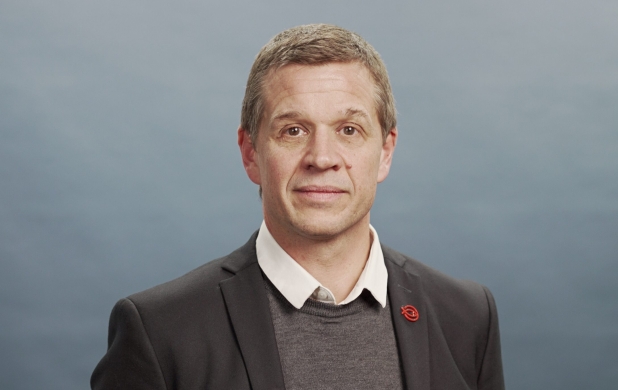As the seventh year of conflict in Syria begins, Lebanon faces overwhelming socioeconomic, security and demographic challenges.
It hosts more than one million people who have fled the brutal conflict in Syria and this, together with the economic slow down, has placed a huge strain on the limited resources and infrastructure of the country.
Nevertheless, Lebanon remains unwavering in its hospitality and support to those in need. With no end in sight for the conflict how will Lebanon continue to cope with this crisis?
Lebanon has come a long way since the beginning of the crisis in 2011. Assistance has changed from lifesaving support to also supporting host community.
Together, we have ensured continued food support to the most vulnerable, while at the same time improving the water supply distribution network and the municipal solid waste management systems of host communities.
By shifting from food delivery towards cash-based support, millions of dollars have been injected in local Lebanese markets, boosting the local economy.
Knap syv milliarder kroner i støtte i 2016
Since the start of the crisis, 4.9 billion US dollars have been provided to address the crisis in Lebanon. In 2016 alone, more than 1.5 billion US dollars (knap syv milliarder kroner, red.) were provided, assistance eclipsed globally only by Syria itself.
Unfortunately, this has not been enough to significantly turn the tide of increasing poverty and decline of the most vulnerable.
Since 2014, the amount of people living with less than 2.9 US dollars per day has doubled to 1.2 million.
People are struggling to live off this frugal amount and around 300,000 Lebanese and more than one million Syrian refugees are sinking deeper into a cycle of debt from which they can not escape.
Unemployment remains one of the most pressing issues for host communities and refugees alike, disproportionately affecting youth and making them even more vulnerable to involvement in illegal, extremist, and violent activities.
Infrastrukturen kan ikke følge med
Deepening socio-economic disparities, as well as overstretched infrastructure and services are resulting in legitimate concerns over safety, security, and employment, which fuels discontent and social tensions.
In most of the municipalities that I have visited, the same concerns and complaints are repeated time and again: people want running water, proper sewage systems, schools for their children and access to a job.
In Aarsal for example, the groundwater is contaminated with sewage because the local infrastructure, already inadequate for the local population needs, cannot handle the additional waste water coming from settlements hosting Syrian refugees.
This is causing an escalation of tension, which could result in violence, if not addressed properly. Arsaal is not a unique case.
Humanitær bistand skal afløses af udviklingsbistand
We should not let the legendary Lebanese hospitality turn into a “hospitality fatigue”.
International solidarity is needed more than ever and must be reinforced. It is imperative that humanitarian and stabilisation assistance continues but the shift from humanitarian to development assistance needs to go further to include support to Lebanon and its economy as a host country.
Next week, in Brussels, more than 70 countries, together with civil society organizations, the EU and the UN will meet to take stock of progress made since last year London’s conference.
We will reaffirm the support of the international community to address key remaining challenges in Syria and in neighbouring countries and the conference will be an important opportunity to promote Lebanon’s example and to embrace a new way of working together.
For Lebanon, this means moving beyond the short-term humanitarian and stabilisation efforts towards longer-term efforts, focusing on economic growth and job creation.
Brug for den private sektor
In advance of the Brussels conference, the Prime Minister has announced that he will present a vision aimed at achieving stabilisation and development through a long term economic program, driven by a package of priority infrastructure initiatives.
This shift in approach is timely, and will allow us to collectively address the most pressing needs of Syrian refugees and host communities affected by the Syrian crisis.
Turning the crisis into an opportunity, and to finally “walk the talk” to support critical reforms and investments aimed at creating jobs and modernising the economy will require the action of all us – the international aid community, the Government and the private sector.
It will require innovation, both in terms of funding and approach. For aid partners, it will require going beyond traditional donor grant financing by seeking innovative investments and engagement of the private sector.
We are at a critical juncture but I believe we can succeed together.
If we succeed, Lebanon will become a beacon of stability, progress and prosperity, known for its openness, ease of doing business and innovation.
It will offer opportunities not only to its citizens, its youth, but also to those who are seeking temporary shelter in the country, enabling them to live in dignity and prepare them to contribute to rebuilding their country once they are able to return.
Preserving the stability of Lebanon means preserving tolerance and diversity in the region. More than ever, international solidarity needs to match the hospitality of Lebanon as a host country.
Together let us deliver action to create a better future for Lebanon and the region.
Philippe Lazzarini is the UN Resident and Humanitarian Coordinator














